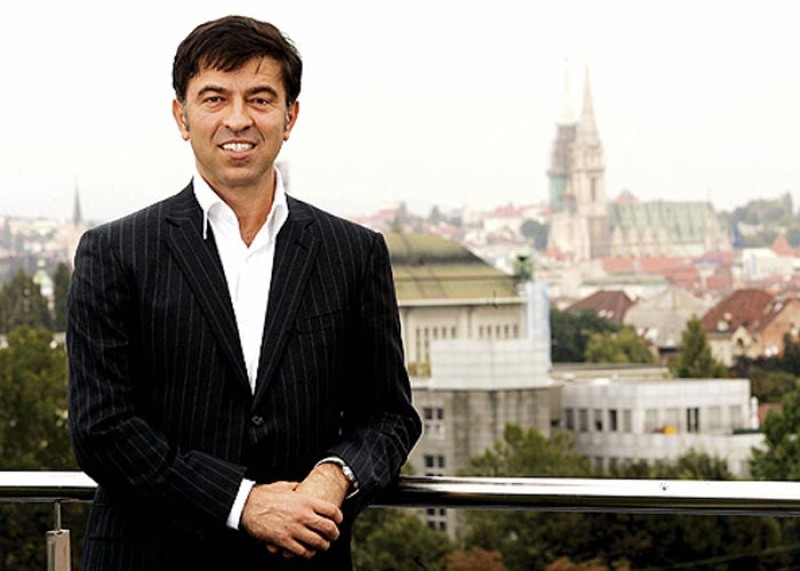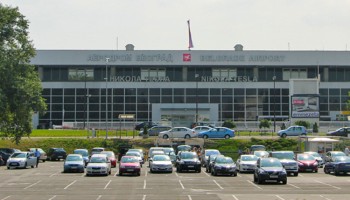Following seven years of litigation and two lower court verdicts, the Court of Appeals in Belgrade must rule by October on the case of Stanko Subotic, who is accused on cigarette smuggling related charges, or see the statute of limitations expire and the well-known figure walk free.
The same hearing has been postponed twice for the same reason in past four months, but in those cases it was Subotic who claimed to be sick. A month later, his lawyer failed to show up in court – also because of health issues. The trial is now scheduled for September.
The State Prosecutor for Organized Crime said the defense is deliberately delaying the proceedings in the hope that the statute of limitations will be exceeded and the state will be forced to drop the case. Serbian law requires indictments to be tried within a certain time period depending on the maximum sentence of the charge. That period expires in October for Subotic.
Since a verdict in the Lower Courts has already been reached, it is not necessary for the defendants to be present at the Appeals Court hearings, but the judges nonetheless decided to postpone them. They explained that they had made the decision to do so when Subotic was ill, and wanted to make sure the defendants had equal rights.
Former judge Ivan Bajazit said the circumstances meant the court should schedule urgent hearings.
“The court must not allow the time limit to be exceeded,” he said.
He added: “This means that the court is not capable to make the ruling within a reasonable period of time. Judging by my own experience as a lawyer, I know that I would use all my knowledge to stall the trial if I am not sure what the verdict would be.”
Subotic was originally indicted in late 2007 along with 14 other people in a high profile case the press dubbed the “tobacco mafia” trial. Subotic is a high profile businessman who Montenegrin President Milo Djukanovic has called a friend. He was indicted with the president in a well-known cigarette smuggling case in Bari, Italy although the charges were later dropped.
Prosecutors in the “tobacco mafia” trial allege that shortly after the last war Subotic together with Mihalj Kertes, director of the Customs Administration, bought cigarettes from Macedonia for Serbia but the documentation was altered at the Serbian border to say the cigarettes were intended for other countries. This allowed them to avoid paying taxes on the cigarettes which were then sold on the Serbian black market. Trucks were traveling in the company of police and customs vehicles to make sure loads arrived safely to warehouses, according to the indictment. The operation cost the state more than €32 million, the indictment said.
According to the indictment, Subotic and Kertes had a strong support of the government, secret services, police, and customs.
The trial began in 2008 in the Special Court for Organized Crime. Subotic, then living in Switzerland, was tried in absentia, after Swiss authorities denied a request to extradite him.
Subotic was indicted on the charge of abuse of office because his company was used for the forged paperwork. However, the old Serbian rules did not distinguish between state and private companies. Swiss law did not recognize abuse of office of a private company and thus refused the extradition.
Subotic offered to pay bail and stand trial on several occasions (offering as much as €5 million euros, about US$ 5.6 million), but the Special Court refused these offers.
In the first trial in 2011, the Court found Subotic guilty of abuse of office and sentenced him to six years in prison.
The Court of Appeals ordered a retrial. Meanwhile, the Serbian Criminal Code changed and new charges of abuse of position by a responsible person, a charge that applied to private companies, were levied. The lesser charge allowed Subotic to post a bail and defend himself.
Subotic first appeared before the court in September 2013, after seven years of flight from justice. He said the entire case against him was politically motivated and in court charged high-ranking government officials with racketeering.
The retrial has been marked by some unusual occurrences. The ex-wife of a customs official, who is a defendant in the case, changed her testimony and denied her previous allegations that her husband was paid by Subotic to let cigarette-ladened trucks enter Serbia unchecked.
Then, a Macedonian company liquidation manager, Jordan Ristovski, showed up at the court uninvited to present evidence that the Yugoslavian military and not Subotic owned the company involved in smuggling. Ristovski was responsible for the liquidation of that firm. The military never resolved the issue but Subotic was acquitted of the charges anyway in July 2014.
Prosecutors appealed the charges claiming the court had given the new testimony from Ristovski too much weight. It is the final appeal the prosecution is allowed.
Deputy Prosecutor for Organized Crime Sasha Ivanic said Ristovski’s evidence should not have been admitted because Ristovski himself admitted that he had stolen the documents.
Ristovski also gave the documents directly to the presiding judge in his chambers without the presence of all parties in the dispute. Ivanic said the law doesn’t provide grounds for the inclusion of such evidence in a trial. The Court of Appeals now must make a final ruling on the case by October. However, if all hearings are not finished and a final decision is not made, it must rule to drop all charges.
By Bojana Pavlović






